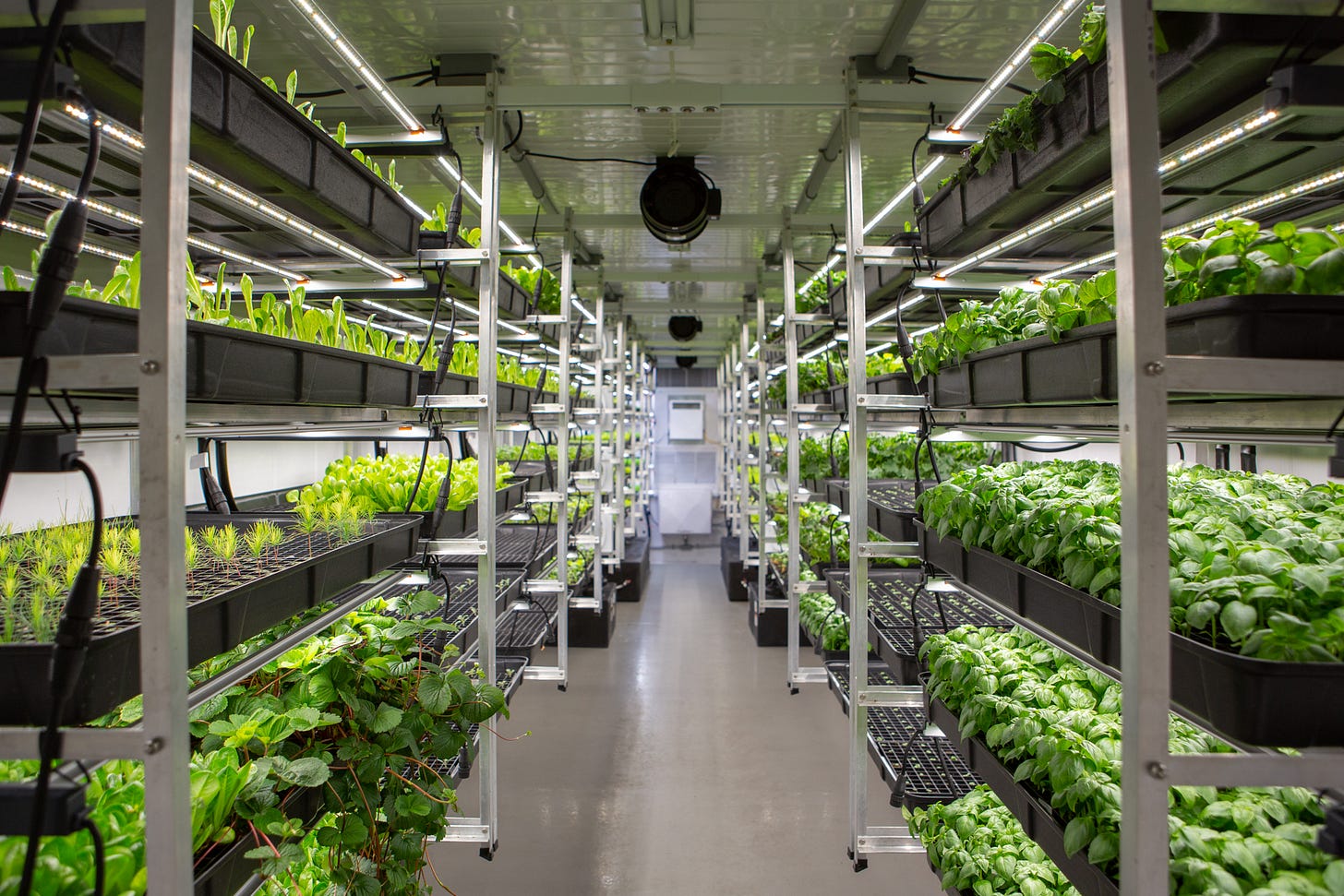The Benefits and Challenges of Container Farms For Indoor Agriculture
Every week discover an editorial on a trendy topic in the indoor farming sector.
Good morning readers, Reefer containers have become popular in indoor farming due to their effective insulation and precise environmental control. Insulation materials like foam and reflective layers in these containers maintain the desired temperature while minimizing heat transfer. High R-value insulation, such as R-28, results in energy savings, increased comfort, longer-lasting materials, and a reduced carbon footprint.
However, moisture problems and the environmental impact of synthetic materials are concerns that must be addressed. Container farms are also flexible for small community-based or large-scale projects and mitigate pathogen risks. These farms can be installed in urban areas as long as water and electricity are supplied and legal authorization is obtained…
Keep reading with a 7-day free trial
Subscribe to Indoor Vertical Farming Newsletter® to keep reading this post and get 7 days of free access to the full post archives.





